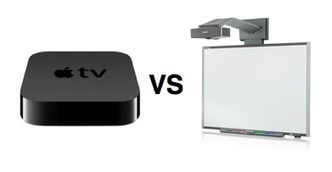
See the original article on www.educatorstechnology.com
This article has some interesting points; it also made me think about some issues:
For many years now, I’ve argued that one of the good things about using technology can be that it encourages (forces?) you to re-think what you’ve been doing. To successfully integrate the new technologies that our learners are using in all parts of their lives, we often need to reconsider what it is we are actually doing in the classroom. This could, of course, lead to the conclusion that what we are doing works perfectly well; if that’s true, then we should continue to do it that way. But the important thing is that we’ve examined it and considered the arguments for and against, and are therefore in a much stronger position to justify what we are doing.
Very often, though, we find out that we don’t actually know what we’re doing! we’ve lost sight of the main learning, or the real-life reason for learning about something in the first place.
And then we could consider transforming what takes place in the classroom. In today’s schools, we are no longer trying to teach how to understand the world we live in right now, but giving our learners the tools, principles and approaches that will guide them to the world of the future. The processes have become more important than knowing one piece of information; how we get there and how often we persevere are much more important.



